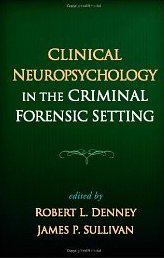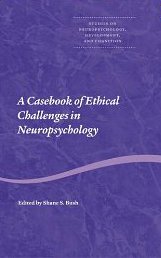Professional Affairs and Information Office
2121 South Oneida Street, Suite 550
Denver, Colorado 80224-2594
TEL /FAX (512) 454-9429
E-mail: PAIO@NANonline.org
NATIONAL ACADEMY OF NEUROPSYCHOLOGY
The neuropsychological examination is one of the methods of diagnosing neurodevelopmental, neurodegenerative, and acquired disorders of brain function. It is frequently a part of the overall neurodiagnostic assessment, which includes other neurodiagnostic techniques such as CT, MRI, EEG, and SPECT. The purpose of the neuropsychological examination is to assess the clinical relationship between the brain/central nervous system and cognitive/behavioral dysfunction, as well as to participate in differential diagnosis. It is a neurodiagnostic, consultative service, and not a mental health evaluation or treatment service.
The Social Security Administration states that comprehensive neuropsychological examinations may be used to establish the existence and extent of compromise of brain function (SSA, 2002). They also describe “acceptable medical sources” for disability examinations to include licensed or certified psychologists. The evaluation is performed by a qualified neuropsychologist who has undergone specialized education and intensive training in the clinical neurosciences, including the relationship between behavioral functioning and neuroanatomy, neurology, and neurophysiology.
Neuropsychological services are subsumed in the Medicine Chapter under "Central Nervous System Assessments/ Tests" in the CPT 2002 (AMA Press, page 368), and have ICD diagnoses. The American Academy of Neurology has rated neuropsychological testing as “Established” with Class II evidence and a Type A recommendation.
Neuropsychological examinations are clinically indicated and medically necessary when patients display signs and symptoms of intellectual compromise, and cognitive and/or neurobehavioral dysfunction that involve, but are not restricted to, memory deficits, language disorders, learning disorders, developmental disabilities, pervasive developmental disorders, impairment of organization and planning, and perceptual abnormalities. Neuropsychological evaluations are important in determining and outlining both subtle and more severe neurocognitive deficits among patients with cerebrovascular conditions, traumatic brain injury, epilepsy, multiple sclerosis, and HIV (AAN, Neurology, 47, 592-599), as well as hydrocephalus, neurotoxic exposure, brain tumors, and other common medical conditions such as thyroid and collagen-vascular disorders among others. Neuropsychological evaluations also provide critical adjunctive information for the diagnosis of conditions such as dementia (National Institute of Neurological Communicative Disorders and Stroke-Association Internationale pour la Recherche’ et l’Enseignement en Nourosciences: NINCDS-AIREN, Roman et al., 1993, Neurology, 43, 250-260; and the NINCDS-Alzheimers Disease and Related Disorders Association, McKhann et al., 1984, Neurology, 34, 939-944).
Neuropsychologists work closely with primary or consultant physicians assessing patients’ cerebral status. Outlining strengths and weaknesses is important in guiding rehabilitation and clinical patient management, as well as in monitoring treatment response and progression. Diagnosis of dementia is critical in the management of patients as well as in assisting caregivers in long term planning. Physicians and organizations such the Pediatric Oncology Group regularly request baseline and follow-up neuropsychological evaluations to monitor the central nervous system effects of radiation, neurosurgery, and chemotherapy.
A typical neuropsychological evaluation entails the taking of an extensive history (including review of medical records), and the administration of a comprehensive evaluation that can take 8 or more hours and requires intensive data analysis. Consultation with other medical professionals such as neurologists, neurosurgeons, pediatricians, psychiatrists, and radiologists is common.
The sensitivity of neuropsychological tests is such that they often reveal abnormality in the absence of positive findings in CT and MRI scans. Moreover, they can identify patterns of impairment that are not determinable through other procedures, leading to appropriate treatment recommendations. In their paper “Psychological testing and psychological assessment: A review of evidence and issues,” Meyer et al. (2001) highlight the finding that neuropsychological testing has been found to be as good as medical tests in detecting neurological conditions such as dementia.
In summary, neuropsychological evaluations are often medically indicated for diagnosis and/or rehabilitation planning. Consistent with the opinions of our medical colleagues as outlined above, such evaluations are neurodiagnostic, consultative services, and not mental health evaluations or treatment services.
Respectfully,
Leslie D. Rosenstein, Ph.D., ABPP-CN
Director of Professional Affairs and Information
Professional Affairs and Information Office
National Academy of Neuropsychology
References
American Medical Association (2002). 2002 CPT: Current Procedural Terminology. AMA Press: Chicago.
McKhann et al. (1984). Clinical diagnosis of Alzheimer’s disease: Report of the National Institute of Neurological Communicative Disorders and Stroke-Association-Alzheimers Disease and Related Disorders Association. Neurology, 34, 939-944.
Meyer et al. (2001). Psychological testing and psychological assessment: A review of evidence and issues. American Psychologist, 56(2), 128-165.
Roman et al. (1993) Vascular dementia: diagnostic criteria for research studies. Report of the National Institute of Neurological Communicative Disorders and Stroke-Association Internationale pour la Recherche’ et l’Enseignement en Nourosciences (NINCDS-AIREN) International Workshop. Neurology, 43, 250-260.
Social Security Administration (2002). Disability evaluation under Social Security. SSA Publication Number 64-039. www.ssa.gov/disability/profesionals/bluebook/AdultListings.htm
Therapeutics and Technology Subcommittee of the American Academy of Neurology (1996). Assessment: Neuropsychological testing of adults. Consideration for neurologists. Neurology, 47, 592-599.
Acknowledgement
This document was based upon “The Neuropsychological Neurodiagnostic Examination: Statement” developed by Stephen Honor, Ph.D., ABPP-CN, FP, CP and The New York State Psychological Association's Neuropsychology Division, published in the NYSPA Notebook, July 1996, 6 Executive Park Drive, Albany, New York 12203.


